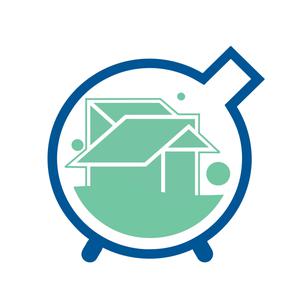
The Building Science Podcast
Positive Energy
If you're a human being and you live indoors, this podcast is more relevant to your life than you probably ever knew. Exploring the ways building science helps humans thrive in the built environment.
- 11 minutes 19 secondsOur First PSA, Humid Climate Conference in Austin, May 6-7!
Big news! The Humid Climate Conference is coming back to ATX and it’s time for some appropriate FOMO. We’re just two weeks out. You will be so glad you made the decision to come to HCC in ATX. Both the technical knowledge and perspectives you’ll hear, as well as the realization and experience of the power, vitality and unstoppability of the growing community of folks in the AEC that are stepping up to move our industry and our society forward.
The theme for HCC’24 is Transitions. The work we do in the world as architects, developers, builders, trades, and even owners is important and it is also going through a series of transitions that together represent an altogether new way of delivering buildings to clients and communities. The Energy Transition, the refrigerant transition, the transition to lower carbon designs, both embodied and operational, are all “in play” right now. Now is the time to learn about them from visionary thought leaders and boots on the ground who are both showcasing these transitions and helping make them happen.
Here’s the HCC website and here’s the link to buy tickets.Code to get $50 off is shared on the podcast!
Team
Hosted by Kristof Irwin
Edited by Nico Mignardi
Produced by M. Walker
1 May 2024, 1:24 am - 1 hour 6 minutesUltrasonics Comes to Market
Today’s episode opens up the system of systems that delivers the materials, equipment and tools we use to deliver high quality homes and buildings to ourselves. The focus is on an novel ultrasonic leak detection system. This is potentially game-changing technology that impacts the ability to confidently deliver Passive House quality air control layers. Along the way you’ll learn about the importance of the air barrier and get a glimpse of the vastness of the AEC. This is an expansive episode that covers the human side of what it will take to get us from high quality designs to high performance finished projects - and ultimately to high quality lived experiences for occupants and owners.
If you appreciate the ideas you hear on our podcast, Humid Climate Conference is the conference and the community you’re looking for.
Bernard Hornung
Head of Built Environment, Coltraco Ultrasonics Limited a technology firm in the UK.
Coltraco is manufacturer of a novel and powerful ultrasonic leak detection system.
An example of the types of innovative and trailblazing materials equip and tools that Source2050 is brining to the market. Major Bernard Hornung was educated at Ampleforth College and at The RoyalMilitary Academy Sandhurst. He served 15 years in the Irish Guards, firstly as a Platoon Commander in the Battalion and secondly at the Infantry Junior Leaders Battalion. Bernard is fluent in Spanish and in Portuguese Bernard joined Coltraco Ultrasonics In May of 2020 (a good time to switch career focus to air quality and air barriers) as Head of the Built Environment at Coltraco.John Knapp
Co-founder of Source2050.
Source2050 is the first mission-driven, curated marketplace of energy efficient and high
performance building products that lets builders find and purchase the best solutions for their projects. As you’ll hear he’s a force of nature who has done a lot, and played a varied of roles during his time on the planet.Team
Hosted by Kristof Irwin
Edited by Nico Mignardi
Produced by M. Walker
22 April 2024, 9:40 pm - 58 minutes 50 secondsNext Level Leverage
What if it’s true that “We can not solve our problems using the same level of thinking that created them”? - Attributed to Albert Einstein
Could it be that our building science understanding is limited? Could it be that even the clarity of understanding we gain by viewing homes and buildings as a systems of systems, assemblies, materials and products interacting according to the laws of science and nature - is necessary but not sufficient to cause us to build that way?
Building science is a necessary understanding but it is proving insufficient to cause the change we want at the pace we need. What do we need to add to the building-as-a-system perspective? What will it take to get past Knowing How to get us to Actually Doing what it takes to design and build for the outcomes we need? Using that concept as a lens, this episode seeks to expand the building-as-a-systems view into the society-as-a-system view in order to find ways to allow the power of building science to have proper impact in society. Anyone working in the AEC knows that the barriers to change are solid and weighty. This is what motivates our search for Leverage.
Leverage is a force multiplier. Leverage creates a large powerful force using a smaller force. We need leverage to multiply the force we can exert to cause change to happen in the AEC. Following the insights from Donella Meadows(2), we focus on the concept of Leverage Points - those “places within a complex system where a small change in one area can have pervasive positive impacts”. What we will discover is that according to Donella our mental models of the world, our industry, and our role in it - our deeply held, often unexamined, paradigms, are points of power that bring leverage.
Please join us for this rich and thoughtful exploration to find sufficiency. What will it actually take to bring the future we want into the present we have. Bring your caring hearts and curious minds and let’s have some fun!Reference: Donella Meadows, Thinking in Systems: A Primer
BSPS, SIGN UP PAGE TO GET ON OUR MAILING LIST, WE NEVER SHARE IT.
https://positiveenergy.pro/the-building-science-philosophical-society
DONELLA MEADOWS BOOK
CHAPTER 6
https://donellameadows.org/wp-content/userfiles/Leverage_Points.pdf
Wiki on Donella Meadows
https://en.wikipedia.org/wiki/Donella_Meadows
Donella Meadows Project - Academy for Change
https://donellameadows.org/
Check out the Systems Thinking Resources page!
https://donellameadows.org/systems-thinking-resources/
Book: Thinking in Systems
https://donellameadows.org/systems-thinking-book-sale/Team
Hosted by Kristof Irwin
Edited by Nico Mignardi
Produced by M. Walker
10 April 2024, 2:11 pm - 1 hour 17 minutesHouses are Made of Stories
Josh Salinger
Joshua Salinger is CEO and Founder of Birdsmouth Design Build, a residential Design Build company located in Portland OR. In 1999 Josh graduated from the University of Wisconsin-Madison with a double major in Zoology and Conservation. In 2007 he started Birdsmouth Design Build with the goal of designing and building beautiful, high performing homes that transform and improve the built environment.
Josh has received certifications from Earth Advantage’s Sustainable Homes Professional course, and is an early graduate of the Passive House Builders Training program administered by PHIUS and is an accredited EEBA Zero Energy Home Professional. He has been on the board of Passive House Northwest since 2016 and also sits on the Technical committee of Zero Energy Ready Oregon. He is currently developing the curriculum in concert with Earth Advantage for the Sustainable Homes Professional Remote Learning & Accreditation Program. He lives in the Mt. Tabor neighborhood of Portland with his wife and two children and enjoys playing guitar, yoga, cooking, bemoaning the inefficiency of his house, and making the world’s best cup of coffee.
Team
Hosted by Kristof Irwin
Edited by Nico Mignardi
Produced by M. Walker
26 March 2024, 3:31 pm - 1 hour 14 minutesEntropy, Insight and Our Time to Shine
Luke Leung
Luke is a LEED (Leadership in Energy and Environmental Design) Fellow; He is also a Centennial Fellow from The Pennsylvania State University Architectural Engineering Department; Board of Directors for USGBC (United State Green Building Council), Illinois; Chairman of the ASHRAE (American Society of Heating, Refrigeration and Air Conditioning) Committee on “Tall Buildings”; Chairman of the Building Pressure Committee, Chicago Committee on High Rise Buildings; Sustainable Committee with Council on Tall Buildings and Urban Habitat; Part Time Professor at IIT; Member of the Chicago Sister Cities Program with China; MBA from University of Chicago, MS and BAE from Architectural Engineering at Penn State University.
Luke Leung is the Director of the Sustainability Engineering Studio for Skidmore, Owings and Merrill LLP. He is the incoming Chair of ASHRAE Environmental Health Committee; Team leader for ASHRAE Epidemic Task Force, Commercial Buildings; Group Leader for LCA and Embodied Carbon, ASHRAE Decarbonization Task Force; National Renewable Energy Laboratory IN2 Incubator Industry Advisor; BOMA Toronto, Health Committee Co-Chair. His work includes Burj Khalifa, the world’s current tallest man-made structure; Multiple times “Excellence in Engineering” award from the American Society of Heating, Refrigeration and Air Conditioning Engineers (ASHRAE); Selected projects also include Pertamina Tower (Net Zero Supertall), General Motors Global Headquarters, XiongAn Net Zero Development, Beijing Finance Street, Embassy of Ottawa in Canada, Embassy in Beijing, Lakeside – 55 million sqft low energy development, a LEED Platinum building with the first large scale horizontal wind turbine in the city of Chicago; etc., and has served as a member of the editorial team for the CTBUH guide Natural Ventilation in High-Rise Office Buildings, ASHRAE “Design Guide for Tall, Supertall, Megatall Building Systems”, among other publications.
Team
Hosted by Kristof Irwin
Produced by M. Walker
Edited by Nico Mignardi
12 March 2024, 3:12 pm - 1 hour 25 minutesWood is Good?
Chris Magwood
Chris works with the Embodied Carbon Team in the Carbon Free Buildings Program. He brings focus on carbon-storing material and the residential sector to the team, using his experience with LCA studies and policy development to support the team’s work.
Chris has been designing and building zero-carbon buildings throughout his 25-year career. From 2005 to 2018, he was a lead instructor in a hands-on design/build program at Endeavour Centre and was responsible for many zero-carbon, zero-toxin, and zero-waste buildings.
In 2019, he helped found Builders for Climate Action and codeveloped the BEAM tool for measuring material emissions in residential buildings. He authored four major studies of embodied carbon in new construction for Canadian governments and helped Canadian cities develop an embodied carbon policy.Chris published eight books on green construction, most recently coauthoring Build Beyond Zero: New Ideas for Carbon Smart Architecture (Island Press, 2022) with Bruce King.
Jacob Racusin
Jacob Deva Racusin is co-owner of New Frameworks Natural Building, LLC, offering services in green remodeling, new construction, consultation, and education featuring natural building technologies. Through their work as a builder, consultant, and educator, Jacob is able to merge their passions for fine craft, ecological stewardship, relationship to place, and social justice.
Their goal in this work is to create a meaningful impact on the built environment in developing healthy, resilient communities. Deva is an instructor at the Yestermorrow Design/Build School, where they are the former director of the Natural Building Intensive Program. A BPI-certified contractor and Certified Passive House Consultant, Jacob has conducted field research on moisture and thermal performance of straw bale wall systems, which is featured in the book The Natural Building Companion which they co-authored with Ace McArleton (Chelsea Green Publishing, 2012). They have lectured and presented at universities, conferences, and other events across the Northeast. Jacob lives with their family in Montgomery, VT, in a straw bale house on their permaculture-inspired homestead.
Team
Hosted by Kristof Irwin
Edited by Nico Mignardi
Produced by M. Walker
1 March 2024, 8:48 pm - 1 hour 17 minutesCircles All the Way Down
How do we design and build affordable net-zero, carbon-negative homes? That important goal is the subject of today’s episode and is the focus of a multidisciplinary team that includes PNNL, Virginia Tech, and Green Canopy NODE. On the podcast today you’ll hear from Patti Gunderson with PNNL who is working with a talented team who are taking a thoughtful approach to this ambitious goal. One that focuses on modular design, carbon sequestering materials, thermal/energy efficiency, and a forward-looking circular approach that relies on cleverly designed, factory-built, bio-based materials right from the start. The outcome is a home that supports an owner’s right to repair (we need this with so many so-called durable products in our world today) and also allows the materials in the home to be disassembled and reused and the end of the home's lifecycle.
Patricia Gunderson
Patti Gunderson joined PNNL in 2021 and supports several projects in both the Energy Policy and Economics and Buildings and Connected Systems Divisions. A particular strength is collaborating with manufacturers, designers, builders, and trades people to understand and overcome barriers to adoption of optimized building technologies.
Patti most recently spent nearly six years at Home Innovation Research Labs where she proposed, designed, and led research projects to study constructability, functionality, energy efficiency and durability of buildings. Her background in building physics, engineering software tools, systems design, discipline coordination, project documentation, and construction administration provides valuable insight for research, analysis and client support.
Prior to HI, Patti worked in the DC office of SmithGroup, an international AE firm, on numerous high-profile projects including embassies, medical centers, university law schools and the flagship Net Zero Brock Environmental Center for the Chesapeake Bay Foundation. Patti is a big fan of collaboration and has benefitted from research partners and clients representing several national labs, the National Association of Home Builders, the Leading Builders of America, and numerous international manufacturers, as well as staff from DOE, FPL, HUD, and VA.
Team
Hosted by Kristof Irwin
Edited by Nico Mignardi
Produced by M. Walker
13 February 2024, 8:06 pm - 1 hour 19 minutesAir-To-Water: Hydronic Hype or the Future?
You don’t have to be a building nerd or an engineer for a question like this to be relevant and important to consider. There are many reasons why AWHP systems make an attractive alternative to our batch of current “normal” heat pumps that rely on refrigerant for thermal distribution. Some of the reasons AWHP are appealing include: (1) reduced refrigerant volumes, thus reduced refrigerant leakage into the atmosphere; (2) larger selection of indoor unit options relative to refrigerant based systems; (3) the ability to support comfort via thermally active surfaces (aka radiant heating/cooling); (4) your home is better future-proofed and more technology-agnostic, and (5) these systems affordably unlock thermal storage (for thermal loads), which can provide energy resilience for their owners as well as dispatchable grid-level energy storage This episode is why you listen to the Building Science Podcast, somehow this multifaceted emerging story has still not hit the mainstream.
24 January 2024, 6:52 pm - 51 minutes 18 secondsNot Your Grandpa's Home Improvement Show
We spend the vast majority of our time inside yet we actually know very little about what it means to live indoors. This is the case even though what happens indoors impacts us in nearly every way. Our comfort, health and overall well-being all are deeply impacted by what's in the air we breathe and what’s happening in and on the surfaces all around us.
Enter Corbett and Grace Lunsford. Knowing that what we don’t know about our homes matters a lot, they took on the challenge of creating a TV show on home performance for mainstream audiences. Their show, now in it’s third season makes it clear that a “good home” is far more than what it looks like and how much it will sell for in the market. In the process, Corbett and Grace have become leading voices in the role of educating us about the many and hidden dimensions of home performance. Join us in this episode as they unpack the why, the what, and they created the Home Diagnosis TV show on PBS.Corbett Lunsford
Corbett began working in the realm of home performance expertise in 2008 with Grace. He quickly discovered the challenges within the construction industry—its inherent messiness, time constraints on professionals, and inadequate compensation, all of which adversely affect homeowners throughout their lives. Their shared objective is clear: to present building performance in an accessible manner for both professionals and consumers, contributing to the improvement of structures globally.
In 2009, Corbett initiated the Building Performance Workshop. He has also been prolific in sharing knowledge through more than 500 YouTube videos, 80 interviews for the Building Performance Podcast, and the authorship of the book "Home Performance Diagnostics: the Guide to Advanced Testing." Additionally, he developed the APT Reports software tool.
Not bound by conventional expectations, Corbett and Grace designed and constructed the world's highest performance tiny house on wheels, the #TinyLab, in 2016. They toured the U.S. and settled in Atlanta, Georgia, creating the groundbreaking TV series "Home Diagnosis," the first of its kind on public television across the U.S.
Grace Lunsford
Grace Lunsford is the powerhouse behind The Building Performance Workshop’s videos and the Home Diagnosis TV series. She started the 'Home Performance' YouTube channel, and has produced over 500 videos to date, gaining 4 million views and 23k subscribers. Grace is the creator, co-host, and Executive Producer of 'Home Diagnosis', the first-ever TV series about measured home performance, which has aired on over 60% of the PBS stations across the U.S. Her short films and feature film, The Other One, have won awards at film festivals, and as a Hewlett-Packard sponsored artist, she presented workshops on her work methods at both Sundance and Cannes.
She founded the media firm Sterling Rock Productions because the media she wanted to see was not being made. She has served on the Boards of Directors of the Screen Actors Guild Midwest and the Illinois Production Alliance (which lobbies for tax incentives in the film industry), where she spearheaded an initiative to bring the production of major motion pictures and television shows to Chicago. She also founded the 501c3 Chicago Acting in Film Meetup, a professional support group of over 150 screen actors.
Grace's career in film and television and voiceover continues in Atlanta, GA, where she's represented by Stewart Talent.
Team
Hosted by Kristof Irwin
Edited by Nico Mignardi
Produced by M. Walker
16 January 2024, 11:57 pm - 1 hour 19 minutesExcuse Me, Your Coil is Leaking
Moving heat with a heat pump is an unsung superhero in the global energy transition. Chances are nearly 100% that you’re using a heat pump right now - to heat or cool yourself, refrigerate your food, or keep your car comfortable while you drive. The vapor compression process may be the thermodynamic engine of a heat pump, but where the rubber meets the road is the heat exchanger, aka “the coil”.
Getting heat exchanger coils right is a balancing act. On one hand we want the coils wall material to be as thin as possible so they move heat efficiently, on the other hand we don’t want the working fluid, typically a high GWP refrigerant, to leak out into the sky. This is a costly hassle for us as well as a tragic outcome for the atmosphere.
This is the backdrop for today’s conversation with Todd DeMonte on coils, coil failures, and the future of refrigerant based heat ex. Todd has been one of many smart folks around the world working to help society move past the vexing issue of formicary corrosion. Enjoy the feast of ideas in this episode!18 December 2023, 2:47 pm - 1 hour 3 minutesHealthy Home Revolution
As a society we are learning, slowly but surely, how to design and build healthy indoor spaces for ourselves and our loved ones. Seeing the need to both guide and accelerate this learning process, Paula Baker LaPorte and her wingman John Banta and Erica Elliot MD dedicated themselves to write a book. This happened 35 years ago with the 1st Edition of Prescriptions for a Healthy Homes, last year (in 2022) the 4th Edition was published and it is a richly updated treasure trove of motivation, guidance and actionable information that we all need to know more about. What we need now is a step change of sorts in the way society thinks about and delivers housing to itself. We need a Healthy Home Revolution.
With that in mind, Kristof sat down with Paula to have a conversation about her journey exploring and understanding the connection between the built environment and our health. After hearing her stories and absorbing the understanding and knowledge in her book, it is clear that homes can be so much more than we currently ask them to be. Homes are more than a visual-spatial-economic situation, more than a place to hold ourselves, our families and our stuff, more than an exercise in energy efficiency and resource use; The places we live are in truth highly immersive and tactile experiences for our bodies and minds, and profoundly impactful opportunities to promote our health and the health of the planet.
1 December 2023, 7:54 pm - More Episodes? Get the App
Your feedback is valuable to us. Should you encounter any bugs, glitches, lack of functionality or other problems, please email us on [email protected] or join Moon.FM Telegram Group where you can talk directly to the dev team who are happy to answer any queries.
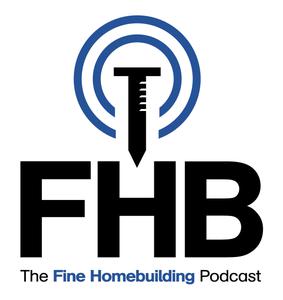 The Fine Homebuilding Podcast
The Fine Homebuilding Podcast
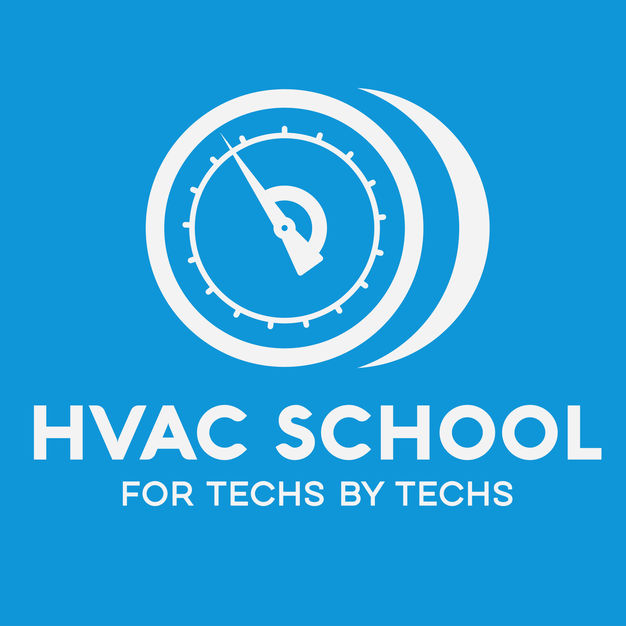 HVAC School - For Techs, By Techs
HVAC School - For Techs, By Techs
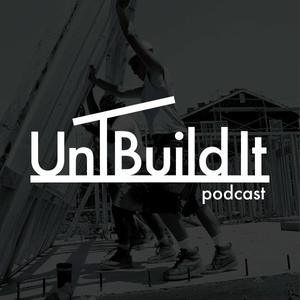 UnBuild It Podcast
UnBuild It Podcast
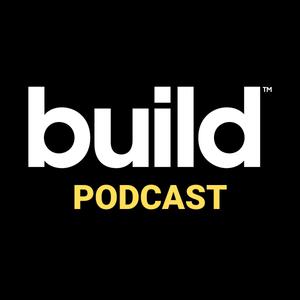 The Build Show Podcast
The Build Show Podcast
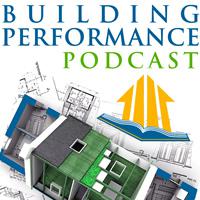 the Building Performance Podcast
the Building Performance Podcast